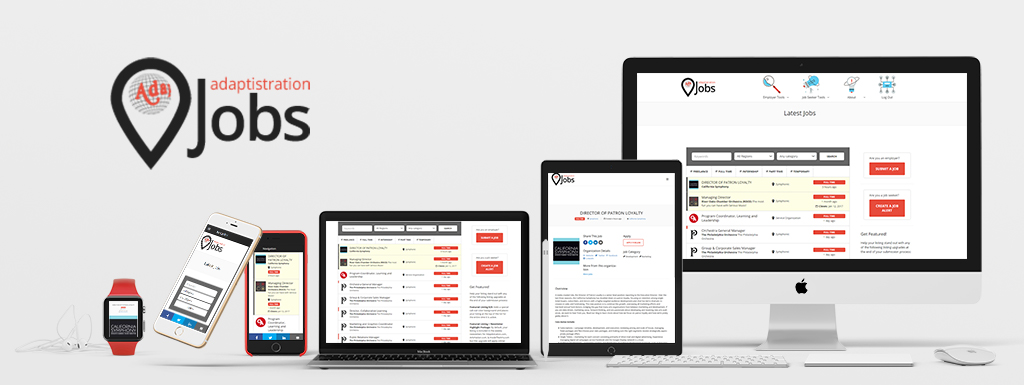Composer, professor, Chair of the UCLA Department of Music, music publisher, and blogger Roger Bourland is a polymathic kind of guy. It’s tough to describe Roger’s contribution but suffice to say, it is undoubtedly a representative example of engaging creativity. If you’re like me, you’ll love it and wonder if the technology exists to crawl around Roger’s mind for an hour just to have a glimpse of what it’s like to experience a live concert event with friends real or imagined…
Between Charlie and Hector
By: Roger Bourland

I had looked forward to this evening for a long time. Rufus Wainwright was going to join me for dinner and an LA Philharmonic new music concert. On the bill was John Adams “Short Ride in a Fast Machine,” Igor Stravinsky’s “Requiem Canticles,” and Lou Harrison’s “Symphony on G.” I had never met Rufus, but he agreed to join me on a free night. He was to arrive by train, so I made reservations at Traxx at Union Station for 6 pm.
I sat for a while, alone, nursing my Hendricks Gibson, when a text arrived on my Palm Pre: “Sorry, I missed the train, no more 2nite, maybe brunch tomorrow?” I was, in a sense, relieved, but disappointed. I wasn’t sure Rufus would really enjoy this concert, as he is more of an opera fan: orchestra, not so much.
I finished my drink, the oysters on the half shell arrived, followed by a black cod with a salad and a lovely glass of Gigondas. I paid the bill and took the shuttle to Disney Hall. “This is such a civilized tradition” I thought to myself; “a lovely meal, a few drinks, and a fabulous concert by the LA Phil, and I don’t have to drive to the concert.”
I got to the hall. We Angelenos are so proud of our new Gehry concert hall. Just being in the space is thrilling. Adding music to sitting in the hall makes it even better. I ran into quite a few friends; said my hellos, exchanged cards, kicked myself for not remembering former students’ names, hit the men’s room, and then found my seat in the right balcony—second row back. The two seats on either side of me were empty; one was, of course, to have been Rufus’. Alas—Roger is at the concert alone. Too bad I can’t experience it WITH someone. Sigh…
POP!
I was reading the program notes when I detected the smell of tobacco and patchouli. I looked over and to my surprise sitting next to me was my old friend [and dead composer] Hector Berlioz.
[I know this sounds unbelievable. I stopped believing in channeled material years ago, but a few years back, several dead composers chose me as a medium to give Rufus Wainwright composition lessons—Hector was Rufus’ favorite. So, I knew Hector from those days. He obviously picked up on my lonely heart.]
R: Hector! So nice of you to pop in!
H: “Oui, mon cher.” And he kissed me on both cheeks. “I am so looking forward to this concert. I don’t know any of it. I saw you were alone tonight, so, voilà! You have me tonight instead.”
I was pleased to have my old friend back to experience his take on all this new music. We chatted, caught up on the comings and goings of other dead composers, when I smelled a very strong whiff of Old Spice—a after-shave lotion my grandfather used to use. I turned to my left, and there was Charles Ives reading program notes.
R: Charlie! Great to have you here!
My grandfather (Roger Sr), knew Ives in the insurance industry. I asked Pappy whether he knew of him. “Of course, he was a damn good insurance man.” And when I asked whether he knew that he was a famous composer, he looked shocked. “I had no idea.”
C: Harrumph, what is all this music? A new Stravinsky piece? A requiem? What the hell? And I knew Lou Harrison. He worked on my 4th symphony. But why the hell is the piece ON G? I guess it’s a mistake.
R: No, the whole piece is built on a 12-tone row—I think you remember that technique—Hector shoved me and looked inquisitively at me. I stopped to explain the technique to him, to which he was completely befuddled.
H: No, why would someone do this?
R: Hector, just go with the flow. He uses the technique and is able to write in quite a few different musical languages all in one piece.
C: Yeah, I’m sure he stole that from me.
R: No, it doesn’t really sound like your music. Maybe little bits here and there.
C: He better not or I’ll sue his ass.
R: Uh, right. Gents, I’ll talk to you at intermission.
The lights went down. The woman sitting behind me asked whether I was ok, and was I going to be talking to myself through the whole concert.
R: I…, uh, no, I ah, no I won’t.
I forgot that no one could see my companions but me. The drinks had made me be a bit more loquacious than usual, and to see some weirdo leaning to the right, then the left, talking to no one, admittedly would have looked weird. I blushed severely as the Adams overture began.
Out of the corner of my eye, I saw Charlie’s right leg bouncing up and down non-stop. I reached over and gently grabbed his leg, pushing down so that his motions were not quite so noticeable. He glared at me, pushed my hand away and kept bouncing.
I looked over at Hector whose mouth was hanging open, utterly drawn into the music. I knew the piece; it was a terrific performance and a great concert opener. With the closing bar, Hector bolted to his feet and screamed and whistled in wild enthusiasm. I leaned over, considering shushing him, but remembered that no one could see him but me. Charlie glared at him, cast his eyes to the ceiling, but applauded politely.
H: That was such exciting music! I don’t know where the melody was. It was like a train. [I pointed out that that element was indeed programmatic.] It’s like, it’s like machine music: tuka tuka tuka tuka…
C: It wasn’t bad for a short piece. A little sappy for me, but stands up and says “halleluiah!”
My guests quieted down for a moment to read the program notes for Stravinsky’s “Requiem Canticle.”
H: A “pocketbook requiem”?
C: Does this get too religious?
R: Oh hush, you’ll like it.
The piece began. I couldn’t read my guests responses to the piece. Charlie bounced his leg in the opening, but not anywhere else. Then, it happened.
Hector bolted out of his chair and started booing wildly. “Fake, imposter! BOOOOO!” and shouted out barnyard sounds.” Embarrassed, I bolted out of my seat to grab him and make him sit down. He fought me, and I fell over. The entire row in front of me turned around to frown and say “SHHHHHH!!”
And at that moment, Hector disappeared. Again, I blushed and scooted down in my seat. I looked at Charlie who shook his head from side to side.
I was relieved for intermission to arrive, knowing what an ass I had just made of myself. I scanned the hall for other empty seats that I might snag, so as to avoid any further embarrassment. I went to a sparsely populated section upstairs and sat down. POP! Charlie reappeared, once again reading the program notes with his half glasses.
C: You know Lou is a homo.
R: Uh, yes, I guess I do. So what? So am I.
Ives glared at me over his glasses, and leaned slightly away from me.
R: Oh pullease Charlie, don’t be like that.
C: My record is actually quite good when it comes to me and you perverts, uh homosexuals.
R: Yes, I know you bailed Henry [Cowell] out of prison. I know he appreciated that.
C: Yeah, so I don’t want to hear anymore about me being anti-homo.
R: OK, Charlie: deal.
The symphony began. I love this piece. So much variety in language, orchestration, and mood. He followed and clearly was moved by every movement in the piece. The most touching moment was during “Air,” a lovely, long-lined section, stylistically somewhere between Reinhold Gliere and John Williams, I saw Charlie weeping, profoundly and deeply. Tears streamed down his face.
At the end of the movement, he took out his handkerchief, wiped the tears from his eyes, and loudly blew his nose.
At the end of the concert, Charlie thanked me, and even gave me a little A-frame hug before his stood back and vanished.
Bill Kraft came over and asked whether I was alright. “I was just giving Charlie a hug.”
“Roger, you work too hard. Take some time off.”
I smiled and blushed realizing that concerts really are ways to take some time off. And it’s really ok to shout in approval, or disapproval, or to sleep, or to cry.
My phone vibrated. Rufus had just texted me. “Hector told me to tell you that he hated the Stravinsky.”
I replied: “Charlie and I loved it. So THERE!”
Read Roger’s bio and more at the TAFTO resource site.


